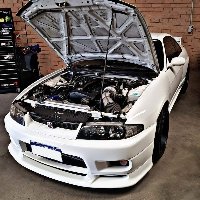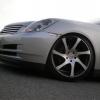Good Performance Shops
Announcements
-
Similar Content
-
Latest Posts
-
Listening to an artist called "the flashbulb". Not bad. Makes some fairly well researched youtube vids in various things.
-
Is actually easier than you might think. Assuming you have a spot, youfab up the branch, then just hang a longer than you can fit length of pipe down from there, and chop bits off piece by piece and decde which length was the quietest/nicest, then just put that length up in the place where it will fit. Clever folk can actually make like a trombone slide type arrangement so you can just play it like an instrument to find the best length.
-
Necroing this thread in 2025 to say thanks! The Manual for the m60 still has the wrong instructions and says to only press button 2 with ignition on. You are a champ, thank you.
-
Night Fury is still going strong. Just added a few recent pics. I have a few projects lined up so stay tuned - I plan to breathe new life into this thread soon!!
-









Recommended Posts
Create an account or sign in to comment
You need to be a member in order to leave a comment
Create an account
Sign up for a new account in our community. It's easy!
Register a new accountSign in
Already have an account? Sign in here.
Sign In Now